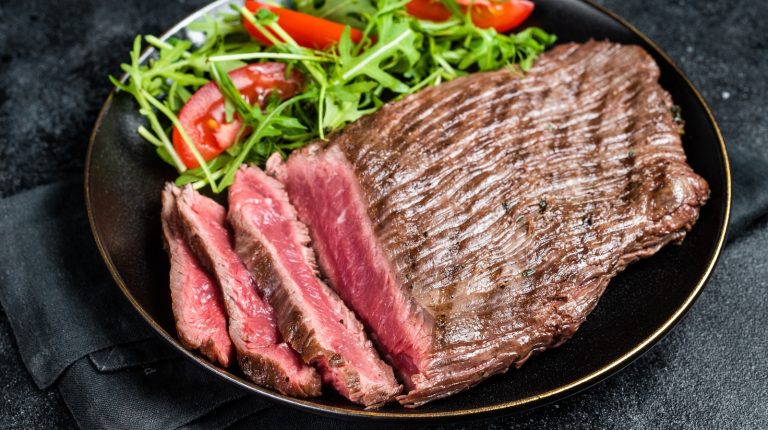Coffee is more than just a drink; it’s part of our social fabric. It’s a staple of many people’s daily routines in the U.S. — whether it’s the simple joy of brewing the perfect pot or taking a daily walk to a great local coffee house. Coffee is a natural energizer that sets us up for the day and acts as a social catalyst — an excuse to meet with friends, take a break at work, and breathe deeply.
Coffee varies in flavor, often due to the type of beans and region they’re grown in, as well as the roasting and brewing process. Overall, it’s known for its intense, bold taste, nuanced flavors, and stimulating caffeine content. While you can tailor your cup by adding milk, cream, alcohol, flavored syrups, spices, and sweeteners, it can be difficult to escape coffee’s intensely complex, bitter, and occasionally acidic profile. We spoke with Eric Gantz, co-founder of Verena Street Coffee Company, to help us figure out which foods should never be paired with coffee.
Citrus fruits
Adding citrus fruits, like oranges, grapefruits, and lemons, to coffee can not only make your beloved brew taste dreadful, but the high acidity can also give you a killer stomachache and worsen the symptoms of gastroesophageal reflux disease (GERD). Now, we love orange-flavored coffee just as much as the next person – after all, who can resist a little splash of Cointreau, or a dash of orange-flavored syrup in their brew? When we say “citrus fruits,” we mean the actual fruit or juice, rather than flavored additions.
The main difference between fresh juice and flavored syrups is the acidity. Both coffee and citrus fruits have some acidity, and mixing them can amplify the flavor and make your coffee taste sour. “Acidic foods are high in citric or acetic acid and can stack sharpness on top of the natural acidity already in coffee,” says Eric Gantz, co-founder of Verena Street Coffee Company. “That can make even a smooth cup taste overly sour or slightly harsh.”
It’s worth noting that coffee from different locations around the world has varying levels of acidity. Beans from Africa, including Ethiopia and Kenya, are often roasted for less time and have subsequently higher levels of acidity, whereas coffee from South American countries is roasted for longer and tends to be less acidic. We still don’t advocate adding orange juice to your cup of coffee, but if you are tempted to garnish it with orange zest, we recommend sticking to the South American varieties.
Capsaicin
Adding spices to your coffee, like cinnamon, ginger, cloves, or cardamom, can add interesting depth and flavor. When we say to avoid spice, we mean capsaicin-based spices from chile peppers, like habanero and cayenne. Capsaicin is a chemical compound found in peppers. It works by triggering the heat receptors on your tongue, which fools you into believing you are overheating. The result is flushed skin, sweating, a runny nose, increased heart rate, and potentially even a burning sensation.
Hot coffee doesn’t contain capsaicin, but it activates the same pain receptors as capsaicin. Therefore, if you drink coffee alongside spicy food, you will increase the effect of that spice and, in turn, increase the pain your body feels. Drinking hot coffee alongside heat-spiced foods is a bad idea — unless you like your coffee served with a dash of unbearable agony.
Pain aside, eating capsaicin-containing spices prevents you from appreciating the subtle flavors in coffee, per Eric Gantz. “All you’re left with is bitterness and heat,” he says. Coffee is meant to be sipped and appreciated, so pairing the delicate flavors with a fiery burn makes no sense at all.
Fish
Combining fish and coffee can go one of two ways, depending on the type of fish you pair with your brew. If you drink coffee alongside a very strong-tasting fish, like mackerel, herring, or sardines, the fish flavor will overpower the coffee, making it taste, well, like fish — and no one wants fishy coffee. Eric Gantz says that oily and briny fish can “[coat] your mouth and [dull] the clarity of coffee,” noting that the fish often produces “a muddy or just off aftertaste that’s hard to shake.”
On the other hand, if you take your cup of joe alongside a delicate fish, like salmon, cod, flounder, or sea bass, the coffee will completely overpower the fish, rendering it tasteless. The long and short of it? Keep your plate of tuna fish far away from your latte.
Pickles
Pickles are foods preserved in vinegar or brine, and they’re probably one of the worst foods you can pair with coffee. In the U.S., “pickles” usually refer to cucumbers, but many food items, including vegetables, eggs, and fish, can be pickled. Though they tend to all have an acidic and sour profile, which is what can make your coffee taste harsh, bitter, or unpalatable.
In 2022, the International Journal of Gastronomy and Food Science published a study on how coffee is affected by other flavors. Scientists examined the five basic flavors — sweet, sour, bitter, salty, and umami — and how they affect the taste of coffee. The study found that participants liked coffee more after eating sweet flavors, and disliked it after sour flavors were introduced.
Sour is not a good flavor in coffee. Besides pairing sour foods with it, it can also be the result of under-roasting or a bad batch of beans. But did you know there is a clear evolutionary reason why we don’t like sour foods? In the past, sour would have indicated rotting or unripe foods, so it’s natural to have an adverse reaction to a food that we don’t associate normally with having the flavor, like coffee. So, its clear that enjoying sour pickles with a cup of coffee is a huge mistake.
Sour cream and yogurt
Sour cream and yogurt are both fermented dairy products, and it’s the fermentation process that contributes to their acidity, making them a bad pairing for coffee. Eric Gantz explains both have more protein and lactic acid than milk, which can cause them to curdle or turn chalky when they’re added to coffee. If you want to give your beverage a milky boost, stick to cream or milk, which Gantz says are more stable.
However, even milk and cream can curdle in coffee, as you may know all too well if you’ve ever added a glug of milk that’s a little past its sell-by date. Again, it all comes down to acidity. Older cream tends to have more lactic acid, which alters its pH. Hot coffee also brings heat and acidity, which can speed up the curdling process.
Fermented foods
Fermented foods include miso, sauerkraut, tempeh, kimchi, and some types of cultured milk and yogurt, as well as wine and beer. Bacteria or yeast transform carbohydrates, such as starch and sugar, into alcohol or acids. These microorganisms can occur naturally, or be added to the food. Once again, those pesky acids are at play and risk of disrupting your sip. Consuming fermented foods and coffee at the same time can give you a double whammy of acid, making your coffee taste off and stomach your hurt.
Eric Gantz offers another reason why fermented foods and coffee should not be mixed. He explains that fermented foods contain compounds like glutamates and acids, which conflict with coffee’s flavor. “They tend to flatten out the cup and can leave a weird salty or tangy clash,” he says. In addition to the acidity and glutamates, there’s the simple issue of jarring flavor profiles. Fermented foods often have an earthy, tart, and tangy flavor that doesn’t blend well with the bitterness of coffee.
Very strong or very mild cheese
Cheese and coffee is a classic pairing in many European countries. For one, it’s common to add cheese to coffee in Scandinavia. We wouldn’t dare suggest that an entire region’s dining rituals are “wrong,” but it should be noted that pairing cheese with coffee can be tricky.
The strength and flavor of cheese varies, so if you plan to pair it with coffee, you must first find the right one. If you match coffee with a delicate cheese, the coffee will drown the flavors, whereas if you go with a pungent cheese, like Stilton, the intense flavors will clash with the coffee. Eric Gantz notes that maintaining flavor balance is important here. “If you lose that balance, even a great coffee will taste sour, bitter, or flat,” he says.
It’s well-known that certain strong or sharp cheeses, like blue cheese, are too acidic to go with coffee, but did you know there are other varieties you should avoid, too? These include comparatively milder and more acidic varieties, like limburger, Brie, queso fresco, ricotta, and brick. It’s not immediately obvious which cheeses will clash with coffee, as even very mild cheeses, like fresh mozzarella and Swiss, can make your coffee taste sour.
Mint-flavored foods
Mint-flavored foods are probably the first thing most people think of when it comes to foods you should never pair with coffee. Anyone who has slurped their morning cuppa after brushing their teeth is familiar with the awful metallic taste that ensues. There are two reasons that your coffee tastes rancid after brushing your teeth. One is that your toothpaste contains sodium lauryl sulfate (SLS), which creates the “foam” and helps remove debris from your teeth. The second is menthol, a key component of mint.
Both menthol and mint have an intensity that dominates other flavors, which can ruin the subtle tastes people like in coffee. In addition to flavor-bombing your taste buds, menthol activates your TRPM8 receptors. This triggers an intense cooling sensation, that may mask or affect certain flavors in the coffee, rendering your favorite drink unpalatable.
Salty snacks
Everyone likes their cup of coffee a different way — some of which defy our recommendations for what foods to avoid pairing with coffee. For example, the Scandinavians like adding cheese, while Americans like peppermint mochas during the holiday season. In that same vein, some people believe adding a small amount of salt to coffee can counteract its bitterness. It’s true — small amounts of salt can improve the taste of lower-quality or exceptionally bitter coffee — but it’s important to note that salt tends to interfere with the complexity of its flavors.
The key word here is small — if you add salt to your coffee, it needs to be a tiny amount. The issue with salty snacks, like popcorn, peanuts, and pretzels, is that they may offer too much salt and ruin the flavor of your cup. Coffee is also a mild diuretic, and pairing it with salty snacks can make you feel thirsty, bloated, and sluggish.




